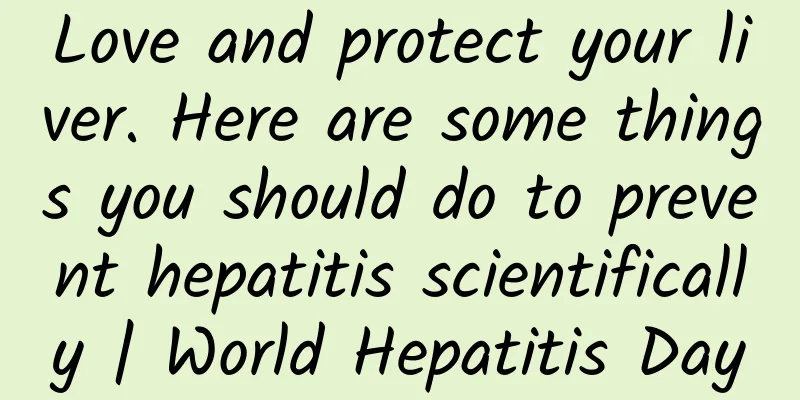Does Cordyceps sinensis have anti-liver fibrosis effects? Can Cordyceps fight liver fibrosis?

|
Liver fibrosis is a pathological change caused by chronic liver damage caused by multiple pathogenic factors. It is a pathophysiological process characterized by abnormal proliferation of connective tissue in the liver due to excessive deposition of extracellular matrix components in the liver, which affects liver function. It is an inevitable stage in the development of various chronic liver diseases to cirrhosis. Any liver damage is accompanied by liver fibrosis during the process of liver repair and healing. If the damaging factors cannot be removed for a long time, the fibrosis process will continue for a long time and develop into cirrhosis. The medical community believes that: liver fibrosis can be reversed to normal, but cirrhosis cannot. Therefore, eliminating liver damage and protecting the liver are the key to preventing the occurrence of cirrhosis. Many liver diseases can lead to liver fibrosis, such as viral hepatitis, fatty liver, alcoholic liver disease, and liver damage caused by chemical poisons. If it develops to the late stage of cirrhosis, it will be incurable. Cordyceps sinensis can significantly reduce serum alanine aminotransferase and bilirubin levels, reduce serum type III procollagen and mucin, increase serum albumin concentration, regulate the immune level of viral hepatitis, and enhance the body's ability to clear hepatitis viruses. These effects are very beneficial in preventing the occurrence and development of liver fibrosis. Other medical studies have shown that Cordyceps sinensis has the effect of inhibiting the proliferation of liver fibrosis caused by carbon tetrachloride poisoning. At the same time, clinical studies have also found that Cordyceps sinensis can effectively reduce the biochemical indicators of liver cirrhosis; by inhibiting the expression of a tgfβ1 gene, reducing the expression of the pdgf gene directly related to liver fibrosis, inhibiting the activation of hepatic stellate cells, reducing the synthesis of type I and type III collagen, and alleviating liver fibrosis. To sum up, we can draw the conclusion that Cordyceps sinensis has a good anti-liver fibrosis effect. For patients with various liver diseases, if they want to prevent, stop and reverse liver fibrosis, taking Cordyceps sinensis is a very good choice. |
<<: Answers to advertising placements on Tencent, Bytedance, and Kuaishou!
>>: How can educational institutions achieve online distribution and content fission?
Recommend
Zap&Go power bank comes out and can charge iPhone 5s in five minutes
Nowadays, mobile power banks have become one of t...
Blockchain mobile phone is still a false proposition after all
[[224147]] As blockchain technology becomes more ...
Blind box event marketing is a blast!
Blind boxes have now become a new type of marketi...
Cooling down! Blizzard! Cold front is coming again
The cold air is coming again! November 19-22 Rain...
Volcano Engine uses "four-wheel drive" to help "smart medicine future"
From June 22 to June 23, the third China Pharmace...
A comprehensive review of brand marketing during the Lunar New Year Festival | Tmall, JD.com, Suning, Vipshop, and NetEase Yanxuan
Having survived Double 11 and Double 12, it’s tim...
Baidu "Dou Xiaodian" advertising strategy
Regarding the channels of second-tier e-commerce,...
Chinese polar exploration: from Dayu's flood control to the "Central Kingdom"
In recent years, the topic of the migration of an...
Aiti Tribe Stories (31): How to become a qualified network engineer?
[51CTO.com original article] Perhaps many people ...
IEA: India's natural gas market outlook report to 2030
India’s gas demand is expected to grow by nearly ...
Analysis report on the operation of the domestic mobile phone market in July 2021: Shipments increased by 28.6% year-on-year, and 5G mobile phones accelerated their penetration, accounting for nearly 80%, a record high
In July, domestic mobile phone shipments reached ...
Attached case | By promoting information flow in this way, the conversion rate can be increased by 50% without any pressure!
A few days ago, we conducted a small survey in th...
Shanghai server cabinet rental price
The parameter configuration of Shanghai Data Cent...
Apple executives: We will not consider supporting multiple users for Face ID in the short term
Apple's current Face ID only supports a singl...
With both land and sea, why did the ancient West choose maritime civilization while China chose agricultural civilization?
We know that the source of Western civilization i...









